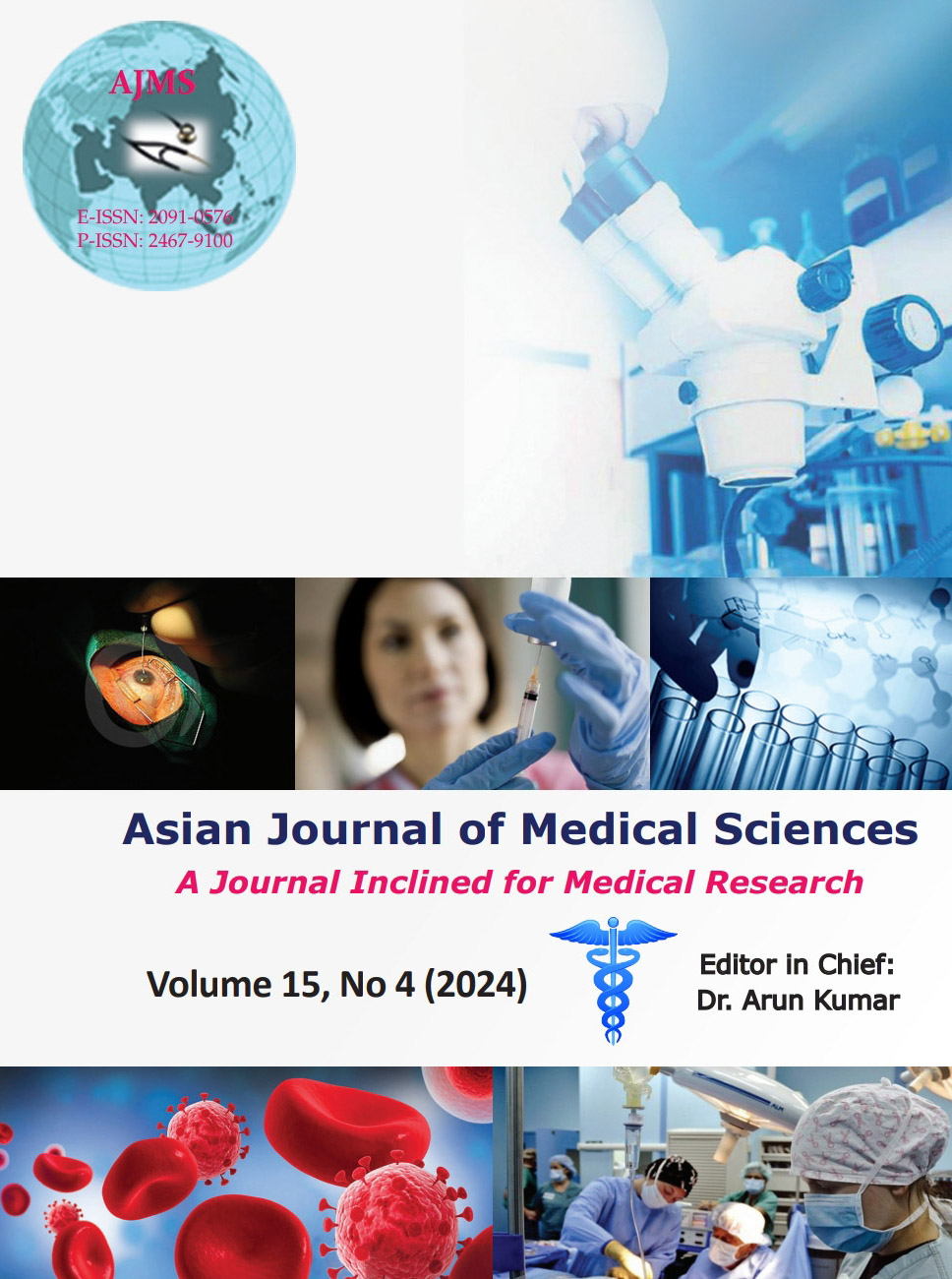Herringbone stitch technique versus interrupted suturing technique for rectus closure in emergency laparotomy: A comparative study
Keywords:
Rectus; Herringbone; Fascial dehiscence; Incisional herniaAbstract
Background: Midline laparotomy incisions provide easy and rapid access to the peritoneal cavity in case of emergency surgery and effective closure of the abdominal wall is crucial for optimal healing and reduced complications. Secure abdominal wall closure after any laparotomy is every surgeon’s aim.
Aims and Objectives: The aim of the study was to choose the better method of rectus closure by comparing the herringbone stitch technique with the interrupted suturing technique for rectus closure in emergency laparotomy.
Materials and Methods: Fifty patients who underwent midline emergency laparotomy at MGM Medical College and MY Hospital, Indore, between January 2023 and April 2023 were included in our study. In 25 patients (Group A) herringbone stitch technique was used whereas in the other 25 patients (Group B) interrupted suturing technique for rectus closure was used and they were assessed based on the incidence of surgical site infection (SSI), superficial wound dehiscence, fascial dehiscence, and incidence of incisional hernia.
Results: The incidence of SSI was comparable in both groups but the incidence of superficial wound dehiscence, fascial dehiscence, and incisional hernia is less in Group A.
Conclusion: The herringbone stitch technique is better as compared to the interrupted suturing technique for rectus closure in emergency laparotomy.
Downloads
Downloads
Published
How to Cite
Issue
Section
License
Copyright (c) 2024 Asian Journal of Medical Sciences

This work is licensed under a Creative Commons Attribution-NonCommercial 4.0 International License.
Authors who publish with this journal agree to the following terms:
- The journal holds copyright and publishes the work under a Creative Commons CC-BY-NC license that permits use, distribution and reprduction in any medium, provided the original work is properly cited and is not used for commercial purposes. The journal should be recognised as the original publisher of this work.
- Authors are able to enter into separate, additional contractual arrangements for the non-exclusive distribution of the journal's published version of the work (e.g., post it to an institutional repository or publish it in a book), with an acknowledgement of its initial publication in this journal.
- Authors are permitted and encouraged to post their work online (e.g., in institutional repositories or on their website) prior to and during the submission process, as it can lead to productive exchanges, as well as earlier and greater citation of published work (See The Effect of Open Access).




